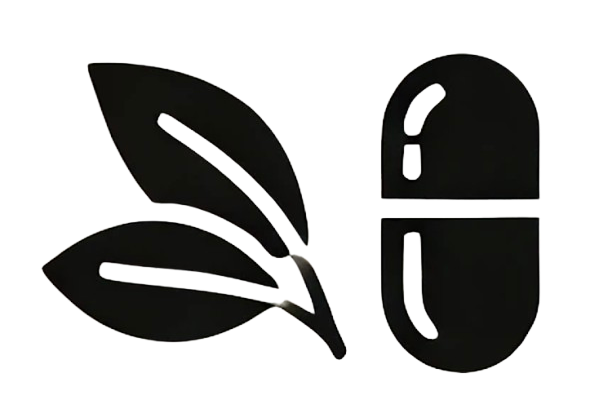Zinc is an essential trace mineral that plays a crucial role in various biological processes, including immune function, protein synthesis, and cellular repair. Its importance in hair health is often overlooked, but zinc is vital for maintaining hair growth, strength, and vitality. Zinc deficiency has been linked to hair loss and scalp disorders, while adequate zinc levels are essential for the normal functioning of hair follicles. This article explores how zinc supports hair growth, the effects of zinc deficiency on hair health, and how to incorporate zinc into your diet or supplement regimen.
What is Zinc?
Zinc is a mineral that is necessary for the proper functioning of over 300 enzymes in the body. It plays a key role in cell division, protein synthesis, and tissue repair—functions that are critical for maintaining healthy hair. Zinc is also involved in the regulation of sebum production in the scalp, ensuring that hair follicles receive the necessary moisture without becoming overly oily or dry.
Zinc is primarily obtained through diet, with rich sources including meat, shellfish, legumes, seeds, and nuts. However, some individuals may struggle to meet their daily zinc needs, leading to deficiencies that can affect hair health.
The Role of Zinc in Hair Growth
Hair growth occurs in cycles, consisting of growth (anagen), rest (telogen), and shedding (catagen) phases. Zinc is involved in several processes that influence these phases, supporting hair follicle health and maintaining normal hair growth cycles. Here are some of the ways in which zinc contributes to hair vitality:
1. Protein Synthesis: Hair is primarily composed of keratin, a protein that provides strength and structure to the hair shaft. Zinc plays an essential role in protein synthesis, ensuring that hair follicles can produce keratin effectively. Without adequate zinc, keratin production may be impaired, leading to weak, brittle hair.
2. DNA and RNA Synthesis: Zinc is involved in DNA and RNA production, which are essential for the growth and division of hair follicle cells. This function is critical during the anagen (growth) phase, where rapid cell division takes place within the hair follicle to form new hair strands.
3. Antioxidant Function: Zinc also acts as an antioxidant, protecting hair follicle cells from oxidative stress. Free radicals can damage hair follicles and impair their ability to produce healthy hair. By neutralizing free radicals, zinc helps protect against hair thinning and loss.
4. Sebum Regulation: Zinc plays a role in controlling sebum production, the oily substance secreted by sebaceous glands that keeps the scalp moisturized. Balanced sebum levels are essential for preventing scalp conditions like dandruff, dryness, or excessive oiliness, all of which can negatively impact hair growth.
Zinc Deficiency and Its Impact on Hair Health
Zinc deficiency can lead to several hair-related issues, most notably hair loss. Zinc deficiency has been associated with telogen effluvium, a condition where hair prematurely enters the shedding phase, leading to significant hair thinning. Other symptoms of zinc deficiency may include scalp irritation, dryness, and dandruff.
In severe cases, a lack of zinc may contribute to alopecia areata, a condition characterized by patchy hair loss. Zinc is critical for immune function, and its deficiency can impair the immune system’s ability to protect hair follicles from autoimmune reactions.
Factors that may contribute to zinc deficiency include:
• Poor dietary intake of zinc-rich foods
• Gastrointestinal disorders that affect nutrient absorption (e.g., Crohn’s disease, celiac disease)
• Vegetarian or vegan diets, as plant-based sources of zinc are less bioavailable than animal sources
• Excessive alcohol consumption, which can reduce zinc absorption
The Benefits of Zinc Supplementation for Hair Growth
Zinc supplementation is commonly used to address hair thinning and promote hair regrowth in individuals with a zinc deficiency. The benefits of zinc supplementation for hair growth include:
1. Prevention of Hair Loss: By addressing underlying deficiencies, zinc supplementation can help prevent hair loss and promote the transition of hair follicles back into the growth phase.
2. Improved Hair Strength: Zinc supports keratin production, contributing to stronger, less brittle hair.
3. Scalp Health: Zinc can reduce dandruff and improve scalp conditions by balancing sebum production, preventing both dryness and excess oil.
4. Antioxidant Protection: Zinc’s antioxidant properties help protect hair follicles from oxidative damage, ensuring healthier hair growth.
Dosage and Sources of Zinc
The recommended daily intake of zinc varies depending on age and gender, but for adult men, it is generally around 11 mg per day, and for adult women, around 8 mg per day. Zinc is available in supplement form, often as zinc gluconate, zinc citrate, or zinc sulfate. However, it’s important not to exceed the recommended dosage, as excessive zinc intake can lead to adverse effects such as nausea, headaches, or impaired copper absorption.
For those seeking to increase their zinc intake through diet, zinc-rich foods include:
• Oysters (one of the richest sources of zinc)
• Beef, lamb, and pork
• Pumpkin seeds
• Chickpeas and lentils
• Quinoa
• Cashews and almonds
Ensuring adequate dietary intake of zinc is crucial for maintaining healthy hair and scalp function.
How Long Does It Take to See Results?
Zinc supplementation for hair growth is not an immediate solution, and results typically take several months to become noticeable. Hair growth is a slow process, and it may take up to three to six months of consistent zinc supplementation to see significant improvements in hair strength and volume. Additionally, since hair thinning or loss can have multiple causes, it is essential to address any underlying factors alongside zinc supplementation.
Conclusion
Zinc is a critical mineral for maintaining hair growth and vitality. Its role in protein synthesis, cell division, and sebum regulation makes it an essential nutrient for healthy hair and scalp function. Zinc deficiency can lead to hair thinning, loss, and scalp issues, while supplementation can help prevent hair loss and promote stronger, healthier hair. By incorporating zinc into your diet or supplement routine, you can support the normal hair growth cycle and maintain vibrant, resilient hair.
